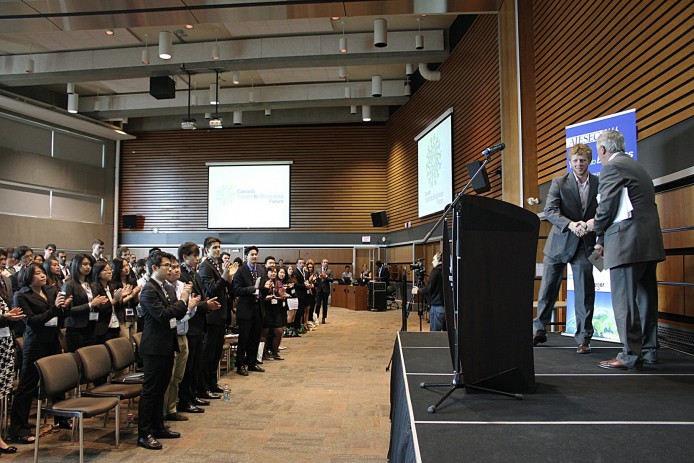Organizational values, reputation, corporate social responsibility initiatives and sustainability are becoming fundamental traits students and recent grads are looking for when choosing whether to apply for a job opportunity with a given company. Continue reading
TalentEgg Trends
Today’s Talent, Tomorrow’s Leaders
Knowledge Hub For Employers, Career Educators And CoachesTag: jobs
If your network of family and friends is anything like mine, it has undoubtedly been affected by the current economic situation.
While catching up with family over the holidays, I’ve heard a handful of stories from some who have already been laid off and others who are crossing their fingers while co-workers with less seniority are let go.
It was strange to be comparing job searching strategies and resumé writing tips with my relatively wealthy uncle who is in his 50s and has been jobless since October. He’s taking a resumé workshop, filled mostly with other middle-aged workers who have recently lost their jobs as well, while he decides if he wants to go back to work or retire early.
My cousin’s husband recently lost his sales job as well. He was successful enough that my cousin quit her job earlier this year to stay at home with their two young children. Within a few months, they went from being a stable single-income family to a no-income family that has to put plans of moving into a bigger home on the back burner.
I know they’re lucky and things are a lot worse for some others who have been laid off.
Hopefully things will turn around soon, but “experts say” things are only going to get worse in the new year:
As bad as the past few months were, even the rosiest of economic forecasts shows on average Canadians will get poorer in 2009, and many – perhaps as many as 200,000 additional workers – will lose their jobs as the economic recession deepens.
However, we should look at the types of jobs that are being lost. Some are demanding government cash to stay afloat: manufacturing, particularly the auto sector, along with the financial sector, is hemorrhaging jobs. Forestry, retail, travel and tourism, and real estate aren’t great industries to be in either, if you believe all the hype.
But things aren’t all bad.
Currently, Canada’s unemployment rate is sitting at 6.3 per cent and it’s predicted to rise to eight per cent in 2009. Looking back to previous recessions, however, we saw the unemployment rate reach as high as 10 per cent in the early 1990s and 13 per cent in 1980-81.
In fact, some industries, such as IT, the skilled trades and health care, can’t find enough people to fill their jobs. As an educated, motivated work force with comparatively low salary expectations, recent grads are probably in the best position of any group of job candidates in the current economy.
TalentEgg itself is a great indicator that employers are still hiring for a lot of entry-level roles, as Lauren said almost a month ago. TalentEgg wouldn’t exist if they weren’t. New entry-level roles are added to the site almost daily. In particular, agriculture, energy, engineering, health care, management, marketing, sales and technology jobs seem to be the most in demand.
Brazen Careerist founder Penelope Trunk recently posted some encouraging evidence that young workers are holding their own in the current economy:
- jobs for candidates with little to no experience are increasing
- there have been and still are plenty of entry-level jobs to be had
- the unemployment rate for workers with a post-secondary education is much lower than that of the general population
She says “that young people shouldn’t be thrown by the bad news that old people are pushing. Things are not that bad if you’re beginning your career.”
A good indicator of these points might be that while everyone else is cutting back, Gen Y is still spending.
What do you think about the current job market for new grads? Should new grads be worried about finding jobs in 2009, or is Penelope Trunk right?
© 2026 TalentEgg Trends
